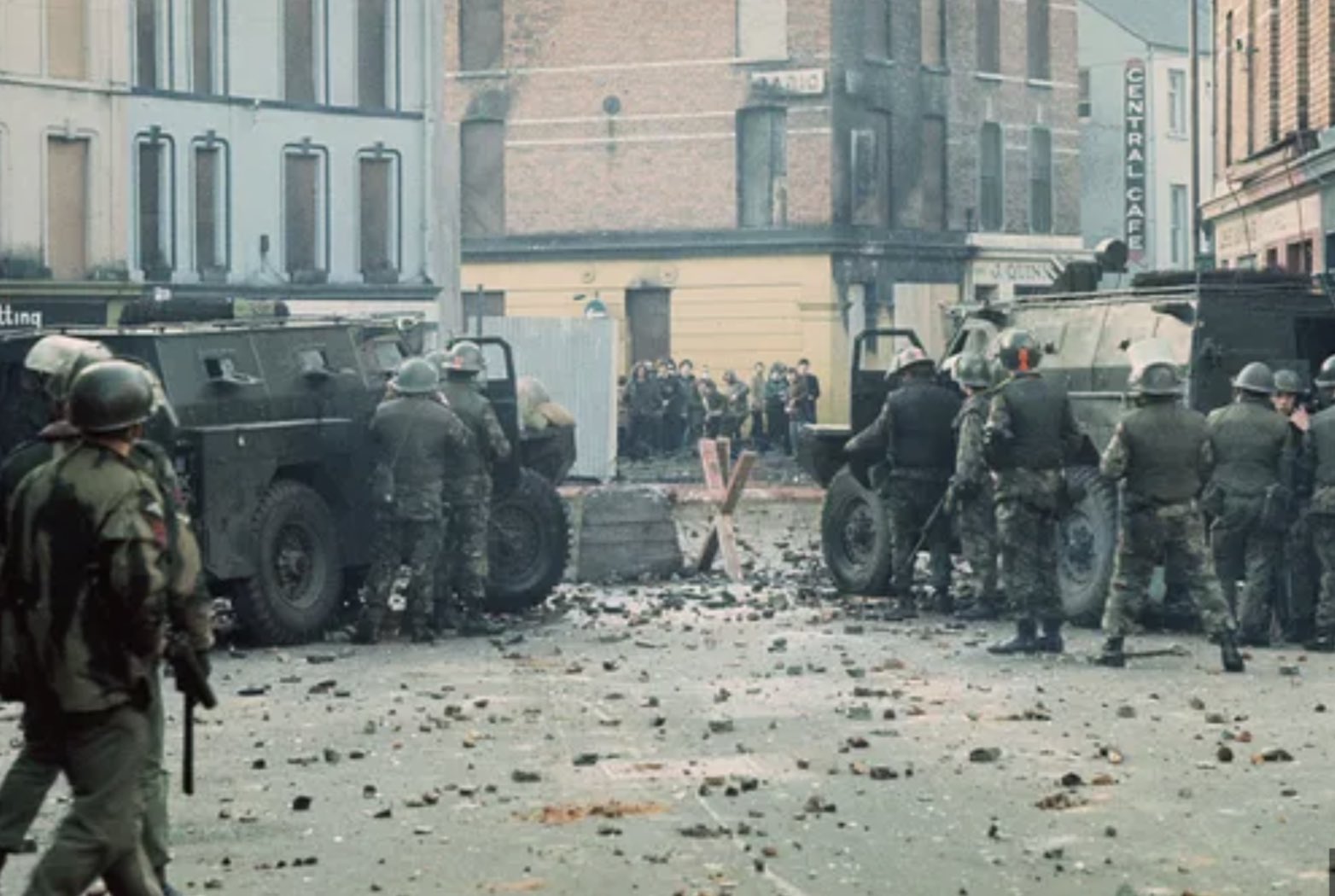


The families of the dead are entitled to seek truth. The state is obliged to uphold the law. Yet this prosecution does neither. Instead, it epitomises a corrosive tendency in our politics: to rewrite history through the courts, punishing the convenient while excusing the powerful.
The orthodox narrative of Bloody Sunday portrays it as an unprovoked massacre of peaceful marchers. That is only half the story. The first shots fired that day were aimed at British soldiers, from a Thompson sub-machine gun near the city walls. Multiple contemporaneous accounts alleged that the gunman was Martin McGuinness, then the IRA’s commander in Londonderry, later to become Sinn Féin’s chief negotiator and Northern Ireland’s deputy First Minister.
Saville’s 2010 inquiry accepted McGuinness was present with a Thompson that morning, though it claimed there was insufficient proof he fired it. But the fact remains: the Parachute Regiment entered the Bogside expecting combat, not a pacifist rally. They were primed for gunfire — and tragically, some opened fire without justification.
None of this excuses the killings. But it matters. Because justice requires context, and this prosecution strips it away.
The case has been mired in procedural chaos. The Public Prosecution Service first charged Soldier F in 2019, dropped the case in 2021 citing weak evidence, then resurrected it after judicial review by victims’ families. It will now proceed as a non-jury “Diplock” trial before Judge Patrick Lynch.
Central to the dispute are statements Soldier F gave the Royal Military Police in 1972. Such statements have been ruled inadmissible in similar cases, including the 2019 collapse of the trial of Soldiers A and C over the killing of IRA man Joe McCann. This trial may yet unravel the same way.
This is not how serious states do justice. It is legal theatre: endless choreography to create the impression of accountability, while ignoring the glaring double standard that defines our entire “legacy” regime.
While an elderly private faces court, hundreds of republican killings have never been prosecuted. McGuinness rose from alleged gunman to government minister. The British state seems capable of punishing only its own.
This is not rule of law. It is appeasement. It teaches soldiers that loyalty will be rewarded with betrayal, and terrorists that their savagery will be rewarded with office. It does not heal old wounds; it rips them open to satisfy the myth that only one side was wicked.
Justice cannot be selective. It cannot mean prosecuting a lone soldier in his dotage while those who fired the first shots become statesmen. It cannot be reduced to show trials conducted to pacify political lobbies.
The Soldier F trial may collapse on technicalities, as others have. It may even secure a conviction. But its symbolism is already corrosive. Britain has chosen spectacle over balance, optics over truth.
If the rule of law is to mean anything, it must apply impartially — to republicans as much as soldiers, to the living as much as the old. Anything else is not justice, but vengeance dressed as virtue. And Britain will one day regret it.